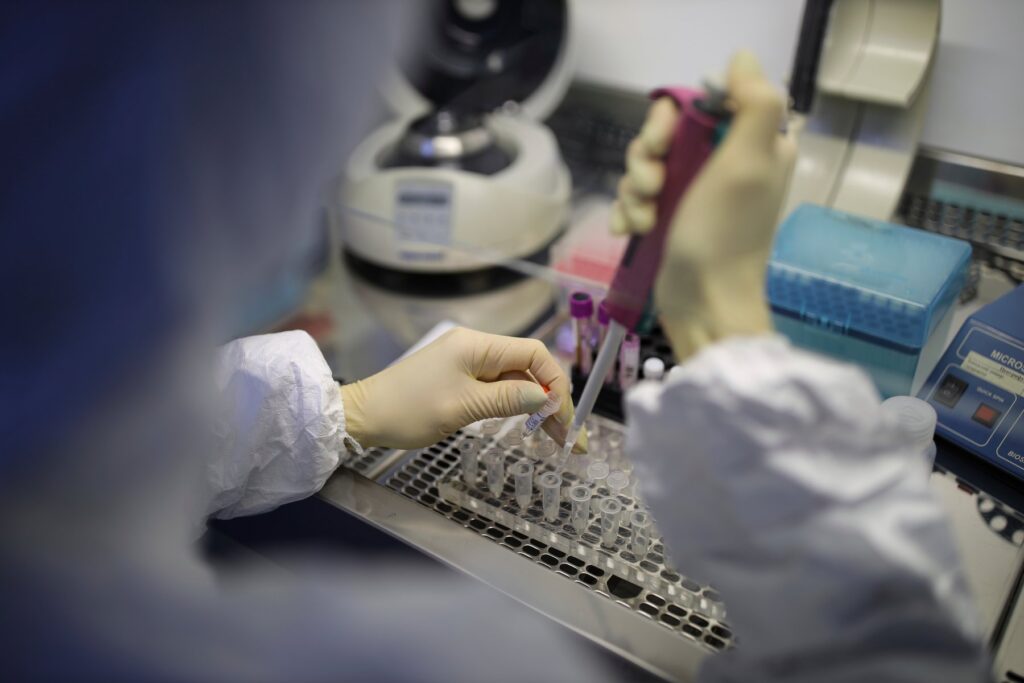
Streptococcus pneumoniae
Pneumococcal infections are caused by Streptococcus pneumoniae (S. pneumoniae), commonly known as pneumococci.
This Gram-positive cocci appears in isolated form, in diplococci or short chains on direct microscopic examination. The peculiarity of the pneumococcus is to have a capsule, one of its main virulence factors. This capsule is essentially composed of polysaccharides with carbohydrate subunits.
Pneumococcus is a major cause of bacterial meningitis. Pneumococcal meningitis requires urgent and sometimes heavy treatment (venous antibiotic therapy, hospitalization or even intensive care). They can lead to death in a few hours and permanent sequelae: deafness, mental retardation… Early diagnosis is essential to put in place prophylactic measures, to take charge, without delay and with an appropriate antibiotic, of the patient to be treated, and thus reduce the risk of sequelae and mortality. The pneumococcus should be sought in the cerebrospinal fluid (CSF) in case of suspected meningitis.
S. pneumoniae is also known to frequently cause community-acquired acute pneumonia (CAP). Clinical signs, symptoms, and clinical examinations alone cannot distinguish S. pneumoniae from respiratory infections caused by other pathogens. Bacterial antigens are mainly sought in urine but also in respiratory secretions.
BioSpeedia has developed 2 tests to detect S. pneumoniae.
PneumoSpeed test (BSD_0100) is intended to detect Streptococcus pneumoniae specific antigens in urine and cerebrospinal fluid (CSF) specimens. It is intended for use by healthcare professionals only.
PneumoResp test (BSD_0300) is intended to detect specific antigens of Streptococcus pneumoniae in samples of respiratory secretions in children. It is intended for use by healthcare professionals only.
